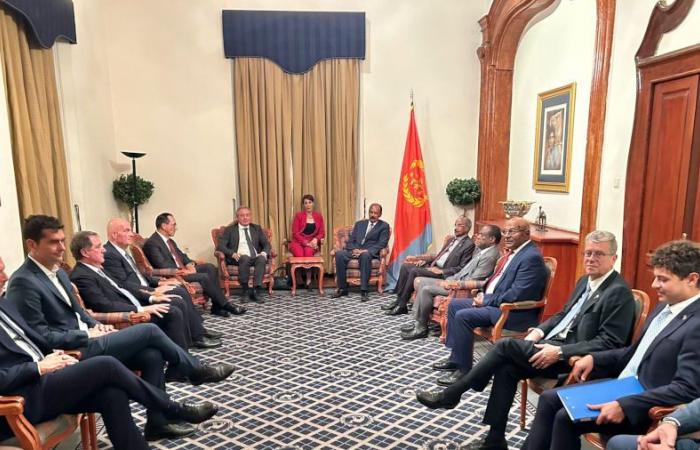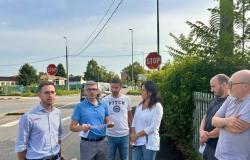“The desire for Italy emerges everywhere and the awareness that our country can play a fundamental role today for the development of the country and for the stability of the area. Italian companies have a natural predisposition to work in Eritrea, as demonstrated by the consolidated relationships developed over the years and the tangible presence of Italy wherever there is a production site, clearly still visible in the machinery and know-how”. This was declared by the Minister of Business and Made in Italy, Adolfo Urso, of Fratelli d’Italia.
“A strategic partnership between Italy and Eritrea on four priority sectors of intervention: this is what was hoped for by Eritrean President Isaias Afwerki during the bilateral summit with the Minister of Business and Made in Italy, Adolfo Urso. The Mattei Plan, thanks to the incessant action carried out by the Meloni government, continues to gradually bear fruit, allowing a nation like Eritrea to emerge from its historical isolation. A nation, Eritrea, with which Italy has historical relations and which clearly shows a great desire for Italy, with which it is possible to build a future in safety and with which a new important phase can now be opened, with the contribution decisive factor of our companies in primary sectors for the development of this nation, a priority for the Mattei Plan. This agreement can truly represent a great opportunity for our companies to bring development to Eritrea and we are therefore convinced that the path indicated by Urso is the right one”, states Fratelli d’Italia senator Roberto Menia, vice president of the Foreign Affairs Commission at Palazzo Madama and national manager for Italians abroad of the party.






